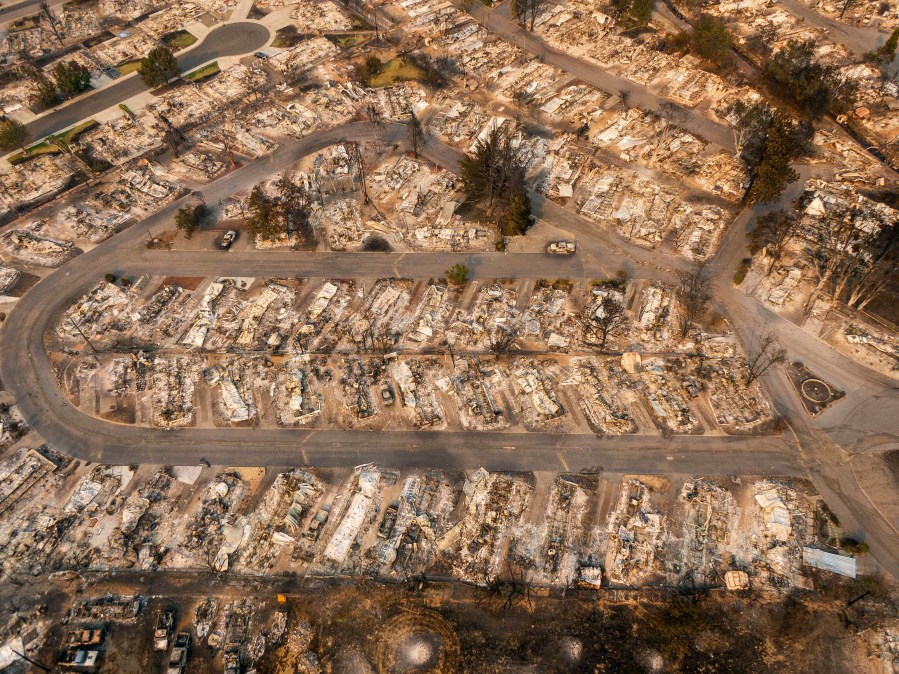CLACKAMAS COUNTY, Ore. (KOIN) — More than 41% of aid applications related to Oregon’s 2020 wildfires are suspected of being fraudulent, according to the Federal Emergency Management Agency (FEMA).
So far, FEMA has identified 9,975 out of 24,038 applications as potentially fraudulent as of Tuesday afternoon. The fraudulent applications are primarily filed online or through the mobile app, and many originate from out of state, according to FEMA.
“The people weren’t even in this state, they didn’t really own the homes, they weren’t here during the time of the fire, but they know how to call the 800-number or go online,” wildfire disaster federal coordinating officer Dolph Diemont told KOIN 6 News.
Diemont said fraud has been increasing over the years, but this is the worst he’s seen in his more than 13 years in this position.
“It just hurts all of the families, decent families that just lost everything,” he said. “It slows down the process and … just deters from the whole effort. It makes me sick.”
FEMA has a fraud office that fully investigates suspicious applications — red flags include calls that come from out-of-state numbers without proper documentation to back up their claim — and people can face jail time if convicted, Diemont said.
Earlier this month, OPB reported about 57% of people who applied for aid were denied. The fraudulent applications only account for a portion of that. Other reasons an application might be denied include:
- Duplicate benefits: FEMA won’t pay for damage already covered by insurance. If your insurance company denies your claim, or the settlement is not enough to meet your disaster-related needs, you must provide documentation to FEMA.
- Home is safe to occupy: FEMA housing assistance usually only covers costs to make a home habitable. Damage to non-essential space like landscaping or outbuildings is not covered.
- Proof of ownership: If FEMA can’t verify you own the home, you may need to provide documentation like a deed, property tax receipt, mortgage statement, or a will naming the applicant as the heir to the property.
- Proof of occupancy: You may have to provide FEMA with documentation like a bank statement, phone bill, utility bills, pay stubs, or a driver’s license showing the damaged dwelling’s address.
- Proof of identity: You may have to provide documents like a copy of your Social Security card, U.S. passport, or military identification.
So far, about 35% of applications have been fully vetted and determined to be eligible, Diemont said, and that number could increase as people with pending applications submit further documentation. The national average for a fire disaster is about 31%.
With thousands of applications are still going through the approval process. Emergency management officials urge patience and persistence.
If your claim was denied and you don’t think it should have been, you can appeal. The state offers free legal help, walking people through the application, denial and appeal process as needed at oregondisasterlegalservices.org or 1-800-452-7636.
“I think we’re doing well, but … quite frankly we’ve never experienced a disaster of this magnitude and this scope before,” said Andrew Phelps, director of the Oregon Office of Emergency Management.
Phelps added that there are state and non-profit organizations aiding in wildfire recovery as well. Those resources can be found on the state’s wildfire recovery website.
